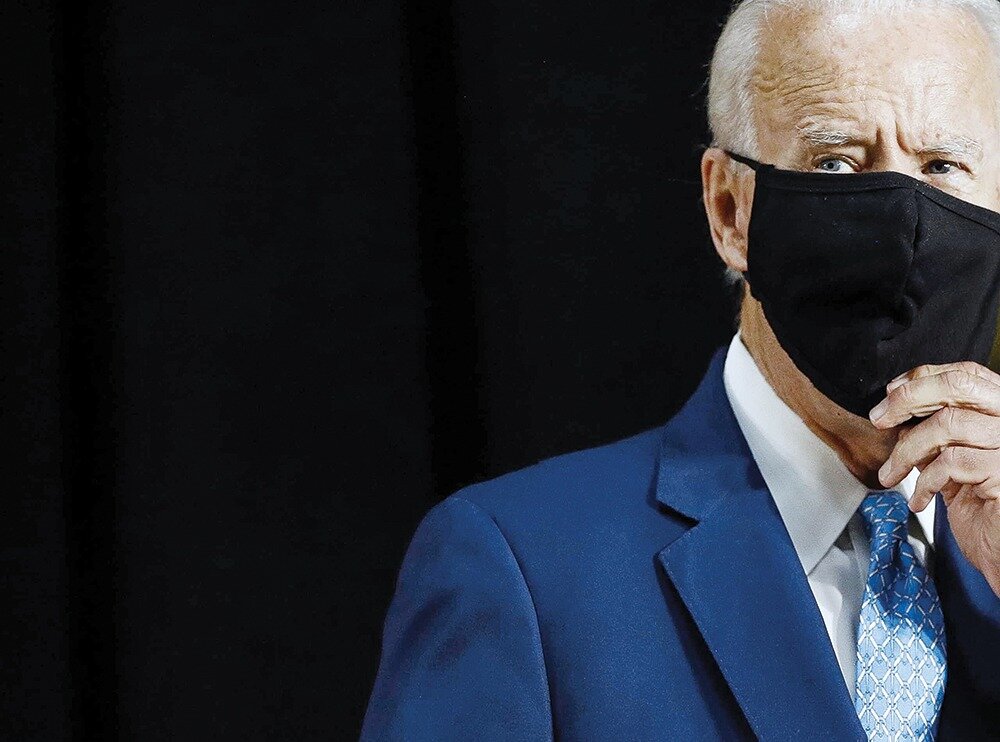Mixed signals
The West's attitude leaves the future of negotiations in the dark

TEHRAN — As the delegates are busy negotiating a possible U.S. return to the JCPOA, the Biden administration seems inconsistent in its intentions, sending Iranian delegates and other sides mixed and confusing signals.
One day, Biden administration officials say they are serious and determined in their bid to join the JCPOA and fully comply with their JCPOA commitments; the other day, they put forward strange conditions, such as “destroying” the advanced centrifuges Iran recently installed at the Fordow and Natanz nuclear facilities. These centrifuges, known as the IR9, are 50 times more powerful in producing uranium than the ones covered by the JCPOA, according to Reuters.
U.S. Secretary of State Antony Blinken has said that Washington still does not know whether Iran is ready to resume compliance with the 2015 nuclear deal. “It remains unclear whether Iran is willing and prepared to do what it needs to do come back into compliance. So, we’re still testing that proposition,” he told lawmakers.
Iran has strongly opposed the insolent demand by the U.S. administration.
In a bid to create a middle ground, Russia, with support from China, proposed that Iran seal and keep the advanced centrifuges inside the country under the supervision of the International Atomic Energy Agency (IAEA), according to a report by Al-Araby Al-Jadeed, a newspaper close to Qatar.
The United States, on the other hand, has rejected Iran’s proposal to remove all sanctions imposed, re-imposed, and re-labeled under Trump’s presidency, as if the JCPOA itself was not complicated enough.
Abbas Araghchi, head of the Iranian nuclear team in Vienna, said on Saturday that the sides will not reach a final conclusion by the end of this round of negotiations, as Iran is yet to address its key concerns. Even Mikhail Ulyanov, the most optimist person of the Vienna bunch said that this round will not likely be the final round of negotiations, as the delegates need two more weeks to round up the negotiations.
Speaking to state TV on Saturday night, Deputy foreign minister Araghchi said that talks will continue in coming days “until we can have a full image of a final agreement.”
“We need to have a timetable, as we are facing a complex situation,” he added.
Araghchi described verification of U.S. measures as a procedure that has “complexities”.
In a tweet on Sunday, Ulyanov said, “Fully agree that we can’t expect the finalisation of the #ViennaTalks in the days to come. It is almost for sure that we will not be able to clean up the draft final document by the day of the Presidential elections in #Iran (June 18). Nevertheless an agreement is within reach,” Ulyanov tweeted on Sunday.
The Russian diplomat refuted rumors that Rouhani will sign a revised draft before the presidential elections on June 18.
"Playing for time is in no-one's interest," German Foreign Minister Heiko Maas, who is not at the talks, told Reuters, urging all sides to show flexibility and pragmatism.
Iran’s chief negotiator also said that Iran will keep negotiating as long as it is necessary.
Ulyanov said on Saturday that at least two weeks of talks were required.
Enrique Mora, European Union’s deputy secretary general for political affairs, who runs the shuttle diplomacy between Iran and the U.S., has stated that he expects a settlement in this round of negotiations, while other envoys are more skeptical.
According to a Washington Post report published on Saturday, the United States believes the remaining gaps “could be closed in a matter of weeks.”
The Post also said that the Biden administration is pushing for Iran to “explicitly agree that the deal would lead to follow-on negotiations.” Such follow-on negotiations, if Iran agrees, could cover regional security and defense issues as well as a possible extension to the JCPOA.
Donald Trump withdrew the United States from the JCPOA in May 2018 and imposed harsh sanctions, plunging the Iranian economy into a slump from which it is only just rebounding.
The complexity surrounding the negotiations for reviving the JCPOA comes amid the most recent confession by former Mossad chief Yossi Cohen who in a live TV program on channel 12 implicitly admitted to assassinating Iranian nuclear scientist Mohsen Fakhrizadeh and did the sabotage act at Natanz.
Both acts were widely attributed to Israel, but Cohen’s specificity was the closest confirmation yet of Israeli involvement.
When asked about sabotage in the Natanz facility, the interviewer asked Cohen where he'd take them if they could go there, and he said, "to the cellar," where "the centrifuges used to spin."
“It doesn’t look like it used to look,” he added.
Iran has time and again repeated that Washington needs to make a political decision. But Biden and Israel are seemingly too close to depart. Rob Malley knows better than Iran that Tehran will not negotiate on its defensive abilities, and Iranian politicians will not enter JCPOA 2, JCPOA+, and further deals. However, political pundits are pondering the question as to why the U.S. is dragging its feet to reach a conclusion. Some say that Biden is dragging his feet to see what happens in Israel.
If so, then Biden is politically ignorant. Is there a difference between Bibi Netanyahu and Yair Lapid and Naftali Bennet? No. will there be a major policy shift? No. Then, why is Biden waiting for Bennet-Lapid coalition to form cabinet?
He is a following Israel. The Bennet-Lapid coalition has also opposed the JCPOA, so it is highly unlikely that Israel will change its policy towards the JCPOA. Lapid supported Macron’s suggestion to put pressure on Iran to come to the negotiation table 10 years after signing the JCPOA, for a “stronger, longer” deal.
If Biden wants to interact with Iran, he should change his tact. Joe needs to prioritize his goals. While the agreement seems so close, it can slip away from Biden’s hands.
SA/PA
Leave a Comment